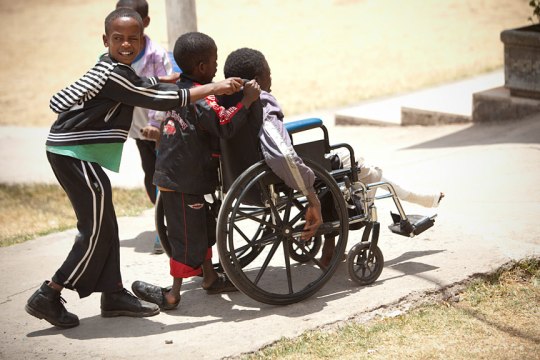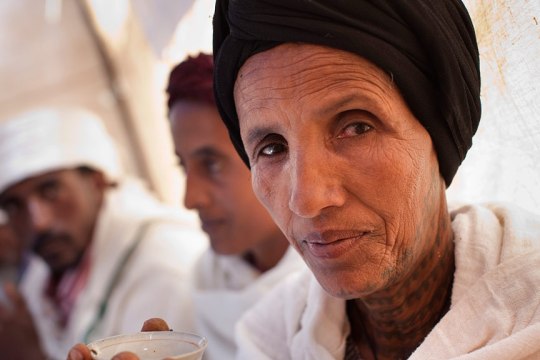There’s Europe, Asia, Africa, the Middle-East, and then there’s Ethiopia. There’s no other place on Earth quite like it. While it’s true that many other cultures also have their own alphabet and cuisine, Ethiopia’s customs and traditions are unique unto themselves. Ethiopia remains the only country in Africa that was never colonized, not to say that people didn’t try. The advent of Orthodox Christianity here in the fourth century created an ancient bastion of Christendom that in many respects remains unchanged until this day.
Ethiopia is culturally rich, but materially poor, and a journey here can be both uplifting and exhausting. I’ve recently spent a week here covering some the work of the International Orthodox Christian Charities. While IOCC has a number of diverse programs in the country, including agriculture and vocational training, the photographs shown here highlight their work with the disabled and infirm.
Podoconiosis, also known as Elephantiasis, is a problem throughout Africa, but especially so in Ethiopia. Here, red soils are high in alkali metals such potassium and sodium. These interact with bare skin and over time cause the swelling of tissue in the feet and legs.
In 2011, podoconiosis was added to the World Health Organization’s Neglected Tropical Disease list. The Ethiopian Ministry of Health followed up by making total elimination of the disease part of its strategic plan. Prevention methods for Podoconiosis are very simple: wear shoes and wash your feet regularly. Treatment can be almost as simple, provided that the disease is not too far advanced, but it takes time.
IOCC currently has six treatment facilities for podoconiosis in the country. Patients attend daily for two weeks and practice a routine of washing and soaking their feet in a mild bleach solution. At the end of the two weeks they’re fitted with special orthopedic shoes and continue to practice the washing routine at home until symptoms have disappeared. This usually takes between six months to one year depending on the severity of the disease. Patients’ feet are also measured regularly in order to monitor improvement. When a patient’s feet are not soaking, bandages are worn on the feet and legs at all times.
When patients are affected with podo, as it is known, they are unable to work, and they along with their families sink deeper into poverty. They also may face stigma from neighbors or family, who are unaware of the causes and think the victim may be cursed. Up until even the last decade, amputation was practiced as a solution because causes and treatment methods were unknown to health professionals. Some victims, fearing amputation, are still reluctant to seek treatment today.
Click above to view a video story I shot about the IOCC’s‘s Podoconiosis treatment clinic in Debre Markos, Amhara Region. Below, workers make shoes for podoconiosis patients at a workshop near the clinic in Debre Markos.
Above, a worker constructs a wheelchair at a workshop in Addis Ababa. IOCC also provides wheelchairs for disabled children living at the Cheshire Services‘s home outside Addis. Most organizations donating wheelchairs would likely have them imported. IOCC has them constructed in-country to support the local job market and allow people to learn new skills, all while helping those who wouldn’t otherwise have access to wheelchairs.
To be disabled in the developing world is an uphill-both-ways challenge. Most disabled children in Ethiopia are forced to stay home from school and remain at home for much of their lives. Above and below, children race down a corridor at the Cheshire Services home in Addis Ababa, where they live and play together and receive vital education and medical care.
During my time in Addis I also got a chance to interview His Holiness Abuna Paulos, Patriarch and Catholicos of Ethiopia, shown below. He is the Princeton-educated head of the Ethiopian Orthodox Church who spent several years in prison under Ethiopia’s oppressive communist rule. During his tenure, the Patriarch has drastically stepped up development and relief efforts of the Church, which works closely with IOCC. He was a generous man who gladly shot the breeze with our crew at his offices while we waited for the delivery of the tripod I’d left behind.















